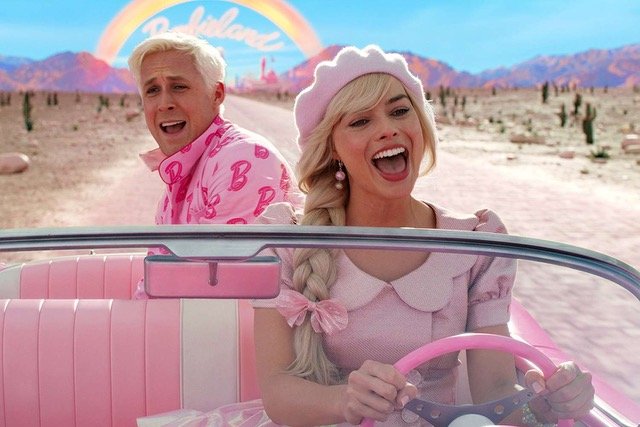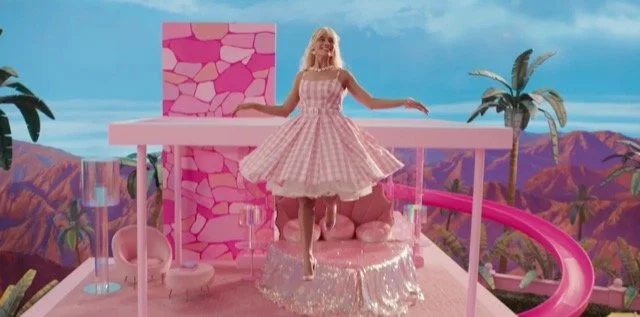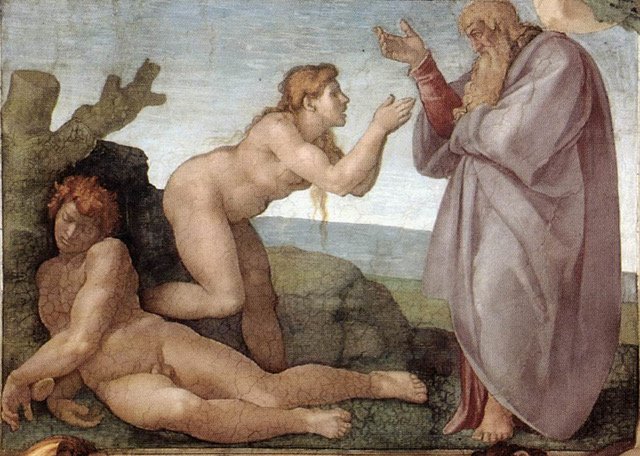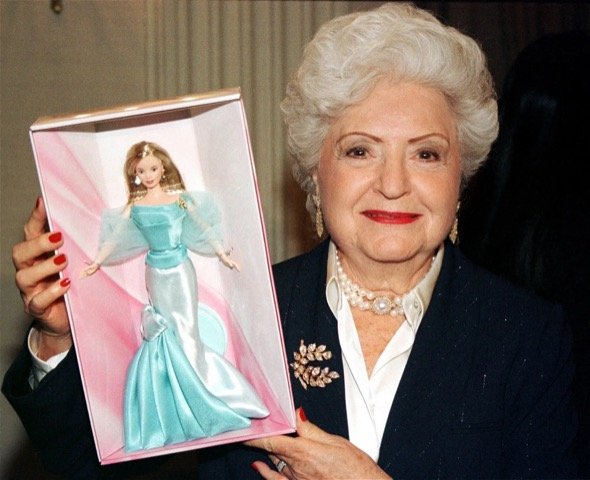In the beginning there was Barbie
Barbie, director Greta Gerwig
“Do you guys ever think about dying?” One Barbie asks the other Barbies.
Ginevra and I made the difficult decision together. We were texting while she was getting ready to go to sleep and while I was drinking my morning coffee. We wanted to see Barbie on a big screen. And we wanted to see Barbie together. Since our life isn’t Star Trek, neither of us could be beamed up to join the other and both of us hate air travel. So, we decided that she would see the film on the big screen in San Francisco. I would see it on a big screen in Paris. As close in time as possible so that we could talk about it when it was still fresh in our minds. When I get home for Thanksgiving, in between binge watching the third season of Murder in the Building, we will see Barbie together. Probably streaming, but maybe we'll get lucky and it will be playing somewhere in San Francisco, on the big screen, for Christmas.
Have you seen Barbie? I urge you to seriously consider it. I am not going to tell you the whole story here but just some thoughts (mine and others) about the movie. That you might think about when you see it, or reflect upon if you already have.
Over the past few years, I have been particularly attentive to how artists responded to the pandemic. Something that Greta Gerwig, the writer (with her partner) and director (on her own) of this movie, said during an interview especially resonated for me. This particular version of Barbie’s story came into being because the pandemic was so confining. Gerwig wanted to think ahead to a moment that would be exuberant. This is how she explained it, “There was this sense of wanting to make something anarchic and wild and completely bananas, because it felt, like, ‘Well, if we ever do get to go back to cinemas again, let’s do something totally unhinged.’” For Gerwig, the anarchy of the film comes from “the deep isolation of the pandemic, that feeling of being in our own little boxes, alone.” (box = spoiler alert)
I saw Barbie a couple Sunday afternoons ago at the UCG Forum, in Les Halles. It’s a multiplex with a screen that’s a lot bigger than my television screen at home but a lot smaller than a screen in a movie theatre that isn’t one of 10 mini-theaters. The theater wasn’t too full and the air conditioning wasn’t too high. It was a little too loud but all the pink helped me deal with all the volume.
Actually not only did all that pink made me happy, everything about Margot Robbie’s Barbie made me happy. Her face and hair and body and clothes made me happy. Her clueless drinking from an empty cup and her water free shower made me happy. So did her mindless hello to all the other Barbies (Figure 1) and her floating descent from her bedroom to her garden below. (Figure 2)
Figure 1. Stereotypical Barbie saying hello to the other Barbies
Figure 2. Stereotypical Barbie floating down from her house to her garden
What did not make me happy was Ken. From the very first moment, I felt sorry for him. Barbie’s life is fine, everything is going well. She doesn’t question how good life is, she just accepts it. But Ken knows something isn’t right. He has an unarticulated longing for a sense of meaning, or at least a sense that he means something to Barbie.
To be completely honest, Ken reminded me of my college boyfriend, Mark. We were serious. I met his mother. She told me that life with Mark would always be interesting. After a few months, I refined what she said, vis a vis me. Life with Mark would always be exciting. For Mark. For someone with him, not so much. Stuck in a subsidiary role at best. Life with Mark would have meant a life waiting for Mark to show up and ‘light up my life’. I gave Mark a pass. Now, I’m not going to say that marrying an older man with an already established career was the best move I ever made, but it was a lot better than being Mark’s side kick, Mark’s Ken.
Where to begin? How about with Genesis. Chapter Two, God creates Adam in His image and then He creates Eve, from Adam’s rib. (Figure 3) With Barbie, the sequence was reversed. Ruth Handler created Barbie and saw that it was good. (Figure 4) Only afterwards and as an afterthought, she invented Ken. Who never really took off. I am not the first to suggest that if somebody had asked Barbie, she would have chosen G.I. Joe. (Figures 5, 6)
Figure 3. Creation of Eve from Adam’s rib, Michelangelo, Sistine Ceiling
Figure 4. Ruth Handler and a Barbie doll
Figure 5. Beach Ken
Figure 6. G.I. Joe
Oh yes, Greta Gerwig’s version of Barbie is about a journey. From Barbie Land to the Real World. It is a journey from which only one of the travelers will return.
The Barbie whose trajectory we follow is called Stereotypical Barbie but she could just as easily have been called Miss Congeniality Barbie. She doesn’t say no to anyone. Except when Ken asks Barbie if he can sleep over. She asks why. He doesn’t know. But then he ‘thinks’ about it and says it’s because they are boyfriend and girlfriend. As it turns out, all the Barbies are coming to this Barbie’s house for a party. So no private time for her and Ken. Whew! (Figure 7)
Figure 7. Barbies at Barbie’s house for a dance
For Barbie and Ken, the Real World turns out to be Los Angeles. Barbie and Ken meet some construction workers. At this moment we could call her Unfiltered Barbie or maybe Clueless Barbie because without provocation, she tells these guys that she doesn’t have a vagina. And she tells them that Ken doesn’t have a penis. She’s cool with what she doesn’t have, Ken cringes. The reviewer in the Guardian calls Ken ‘the appendage without the appendage’.
The more time Ken spends in the Real World, the more he likes it. The patriarchy looks pretty sweet to him. He sees potential for it in Barbie Land. Barbie’s experiences on the other hand are devastating. Among other things, she learns that in the Real World girls don’t like her. She is an impossible role model.
Oh wait, there’s more. Barbie has a Proustian moment. Seriously. Here’s how that happens. When Barbie gets to the Real World, her destination is Mattel Headquarters. The top executives have already been tipped off that she is in L.A. They are in an emergency meeting when she arrives. The CEO, played by Will Ferrell, tells Barbie to get “back in the box.” As Acquiescent Barbie obediently hops into the human sized Barbie box, the smell of it reminds her of something. As the plasticized wire bands are being wrapped around her wrists, she breaks free of the bonds, jumps out of the box and races out of the building. Will Ferrell explains what happened to the other men, “Remember Proust Barbie? That did not sell very well.” (Figure 8)
Figure 8. Mattel Executives looking for Barbie (and also but not really, Ken) in the real world
Greta Gerwig explained Barbie’s Proustian moment in an interview. “There were several jokes where I was like, “This might be for three or seven people, but I will keep it in for them!” She visited several theaters the first day the film was screened. And was in a theatre when Ferrell mentioned the Proust Barbie. Gerwig told the interviewer that two people “died at that joke (and) I was like, “Yes! It was for you, and you got it. I’m so glad that I was here to see that work in the wild.”
As I was doing research for this piece, I found an article in Literary Hub by Orlando Reade, a scholar who specializes in Paradise Lost. You can accuse me of seeing Proust in lots of places but this guy sees John Milton everywhere. Barbie, the movie is no exception. Let me share a few snippets from the article. https://lithub.com/greta-gerwigs-paradise-lost/ (Figure 9)
Figure 9. John Milton, Paradise Lost
“Since its publication in 1667, readers have often used Paradise Lost to think critically about patriarchy….Barbie Land, like (Milton’s) Eden, is sumptuous, sweet, and sufficient … Like Milton’s Eden, Barbie Land contains the seeds of its own destruction: gender inequality. Ken exists in a state of perpetual anxiety, hoping only to please Barbie. In this, he resembles Milton’s Adam …(who) worries about (Eve’s) self-sufficiency.…Both Ken and Adam suffer from patriarchal rage…”
“The ending of the film is another place where I suspect Milton’s influence. … The fallen world that Adam and Eve enter is… a divine creation. … (T)hey are not unhappy….”
Ken and Barbie each find something in the Real World. Barbie, who has never seen anything but other perfect plastic dolls, sees an old woman on a park bench. She tells the old woman that she is beautiful. The old woman says yes, she knows. (Figure 10, 11) And then there is the “… montage of human life: mothers holding babies, old people smiling, people touching grass,” that Barbie sees. Again, according to Reade, “It is this image of happy dependency that causes (Barbie) to choose the real world over Barbie Land.” We see a tear rolling down Barbie’s cheek. It is a tear that is only possible because she is in the Real World, a real person.
Figure 10. Old Lady and Barbie
Figure 11. Barbie and Old Lady
Another interview with Greta Gerwig seems like the perfect way to conclude as some of us herald the arrival of Year 5784.
Gerwig explained to an interviewer, that as she was growing up, “her Christian family’s closest friends were observant Jews.…She (ate) with them on Friday nights for Shabbat dinner, where blessings were sung in Hebrew, including over the children at the table. May God bless you and protect you. May God show you favor and be gracious to you. May God show you kindness and grant you peace. Every Friday the family’s father would rest his hand on Gerwig’s head, just as he did on his own children’s, and bless her too.”
“I remember,” Gerwig said, “feeling the sense of, ‘Whatever your wins and losses were for the week, whatever you did or you didn’t do, when you come to this table, your value has nothing to do with that. You are a child of God…’ I remember feeling so safe in that and feeling so, like, enough.”
Gerwig hopes that people leave Barbie, the movie, feeling transported, laughing, maybe crying. She wants them to feel blessed, like she did at those Shabbat dinners when she was a child.
Copyright © 2023 Beverly Held, Ph.D. All rights reserved
Dear Reader, I hope you enjoyed reading this article. Please sign up below to receive more articles plus other original content from me, Dr. B. Merci!
And, if you enjoyed reading this review, please consider writing a comment. Thank you.











